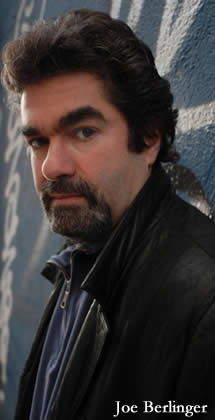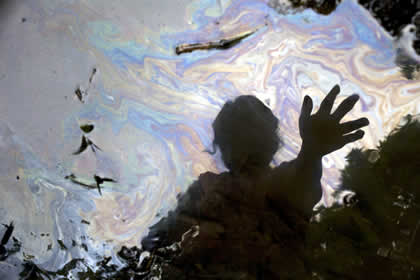Three years in the making, this cinéma-vérité feature from Joe Berlinger is the epic story of one of the largest and most controversial environmental lawsuits on the planet. The inside story of the infamous “Amazon Chernobyl” case, Crude is a real-life high stakes legal drama, set against a backdrop of the environmental movement, global politics, celebrity activism, human rights advocacy, the media, multinational corporate power, and rapidly-disappearing indigenous cultures. Presenting a complex situation from multiple viewpoints, the film subverts the conventions of advocacy filmmaking, exploring a complicated situation from all angles while bringing an important story of environmental peril and human suffering into focus.
Joe Berlinger is an award-winning filmmaker, journalist and photographer, whose films include the celebrated documentaries Brother’s Keeper, Paradise Lost, and Metallica: Some Kind of Monster.
Bijan Tehrani: How did you first encounter this subject of the Crude?
Joe Berlinger: I’m not normally a human rights or environmental filmmaker; I think my previous films have social issues in them but they’re not directly as political as this one is. My last film was Metallica: Some Kind of Monster which was a film about a rock band going into therapy, which was not exactly the kind of film that would attract a human rights lawyer to come see me. But he liked my work and he liked my style and as he was telling me about the story it just didn’t seem like the type of film that I would do, because I consider to be myself a storyteller first and a journalist second; I tend to work in the Cinema Verite style of filmmaking, which just allows events to unfold by themselves in front of the camera. I’m also the type of filmmaker who doesn’t like to bang a single message over the viewers head as a lot of these films tend to do, so I told the producers that I really didn’t think that I was the right kind of filmmaker for this project. But they were convinced that I was the right guy and I eventually had a change of heart. When I finally arrived at the site I was shocked at how this whole landscape had been completely devastated by oil and I became very determined to tell this story.
BT: This film really pulls you in from the very beginning, and the climax of the film leaves the audience in suspense. Is there a particular reason why you decided to end the film this way?
JB: One of the themes of the film and the, reason why we leave the ending hanging, is in that it is not really important on who is going to win the lawsuit but rather it takes too long to solve this problem. We wanted to point out the flaws in the legal systems around the world and how problems like this go unresolved for so long. This is a conflict that has been going on for seventeen years and I’m sure that it will continue for several more years while generations continue to die.
BT: There is an idea the filmmaker should never cast judgment on the subjects that they are documenting, do you agree with this?
JB: For me, the treatment of indigenous people is the focus of the film, but the realization that I had is that for six or seven hundreds years the America’s have treated indigenous people terribly. As Americans we try no to think about  that aspect of our history and when we do think about it we think about it as the distant past. What became clear to me is that, what multinational companies have done in South America and other developing countries, is just the modern day continuation of the blatant disregard for the indigenous people in the region. So I would have to judge against these companies because I feel that ultimately the responsibility lies at their door.
that aspect of our history and when we do think about it we think about it as the distant past. What became clear to me is that, what multinational companies have done in South America and other developing countries, is just the modern day continuation of the blatant disregard for the indigenous people in the region. So I would have to judge against these companies because I feel that ultimately the responsibility lies at their door.
BT: Did the visual style of the film come together during shooting, or was it conceived in the editing room?
JB: It’s a little bit of both. I thought that the present sense structure of the trial was a great visual device to hang everything on. Also, the beauty of the jungle and the beauty of these people interweaving the trial and exploring other places, we realized that there were a lot of visual elements to balance. I like making documentaries that mimic the dramatic structure of a good fiction film.
BT: Do you have any new projects that you are working on?
JB: I do this television show called Iconoclast and we’re going into season five. I’m starting a film that is completely different; it is a portrait of Clive Barker, the horror writer.
BT: It was great talking to you and good luck in the future.

